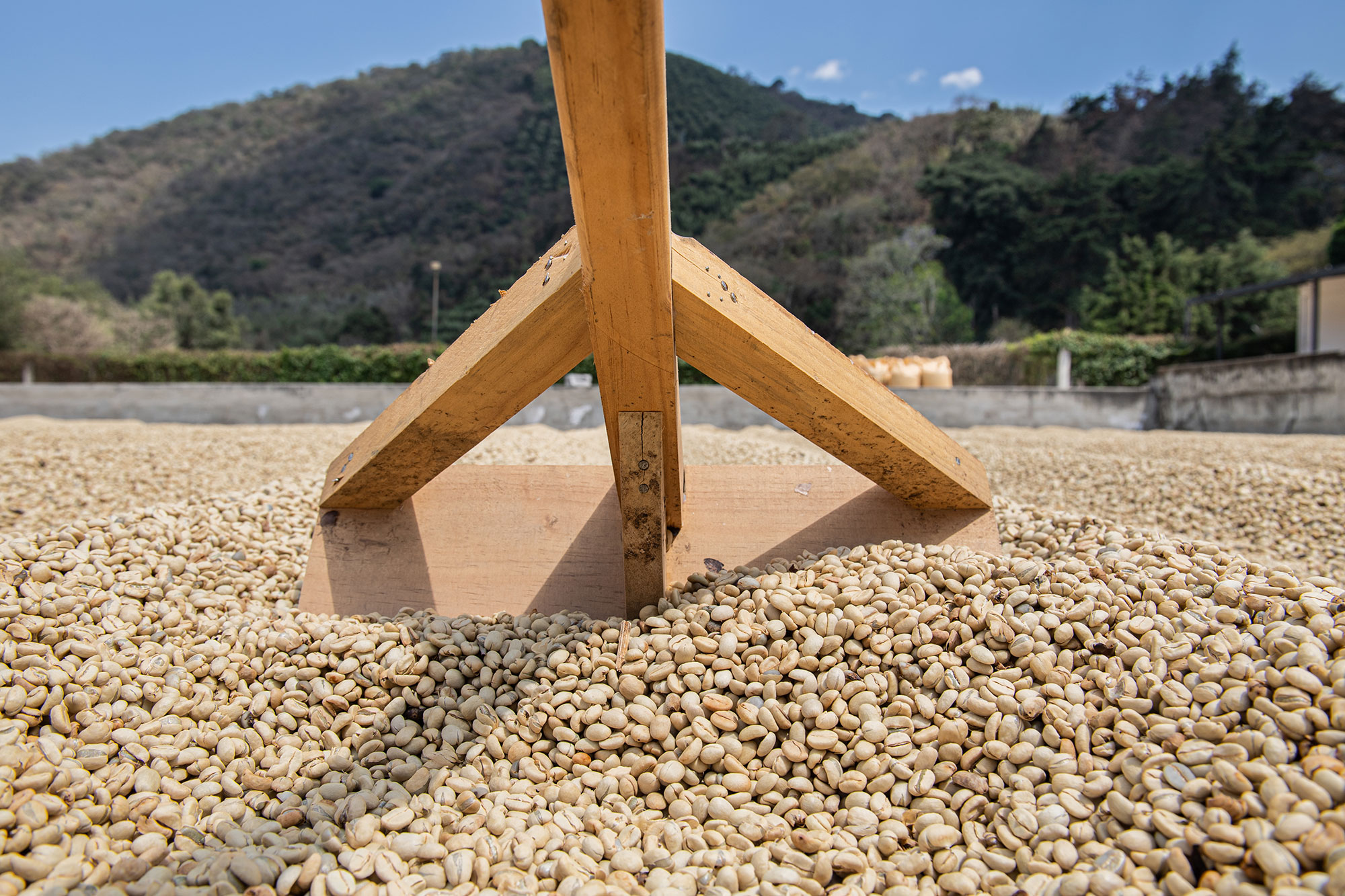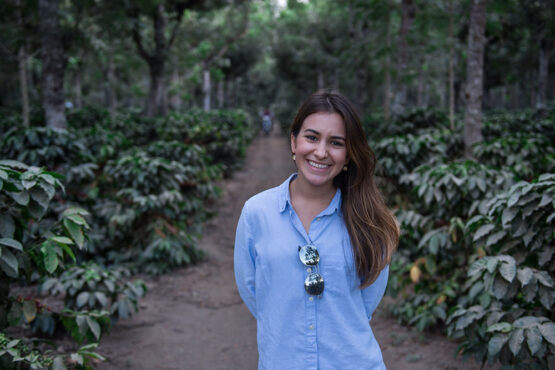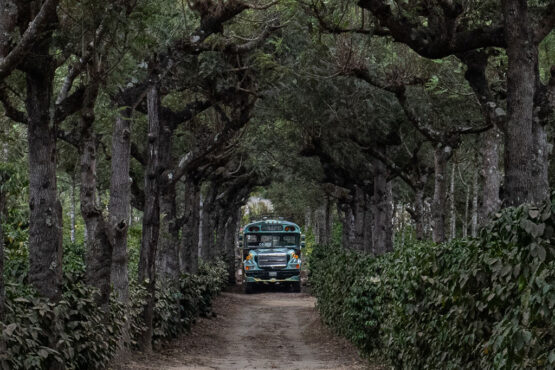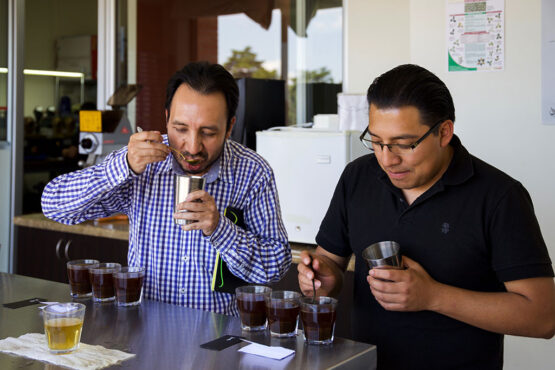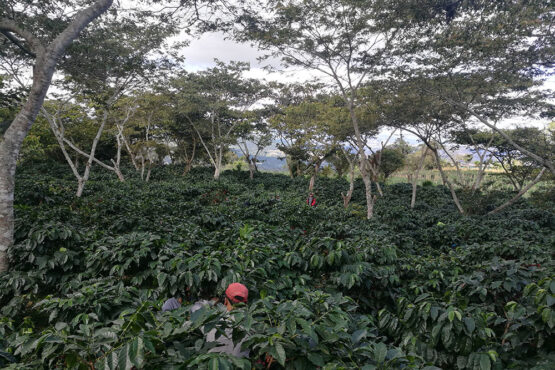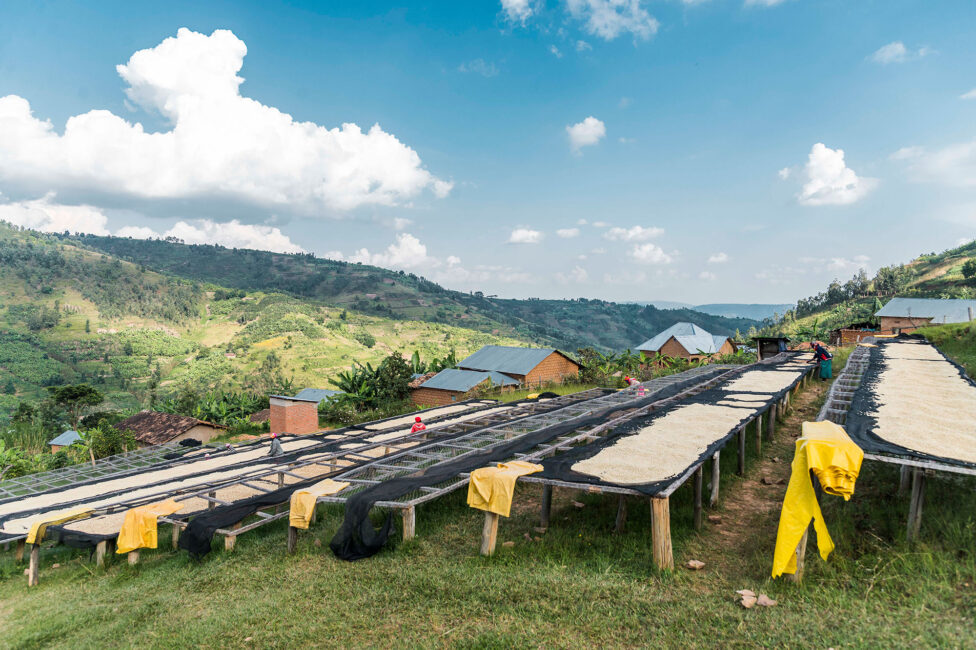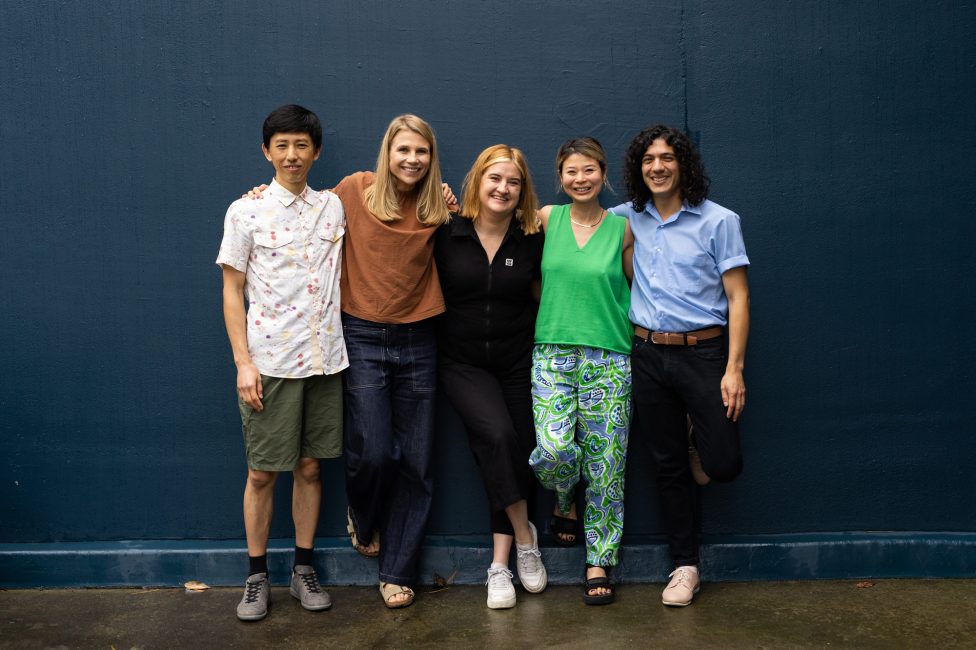Guatemala Harvest Report
Published 28 September 2021
Visiting our friends and suppliers in Guatemala has been a staple of MCM’s calendar for over a decade, since we first started sourcing coffee there in 2008. We treasure the relationships we have built in Guatemala over that time and look forward every year to catching up and learning more each harvest.
Although we haven’t been able to travel since Covid-19 restrictions came into place, we have kept in close and regular contact with our Guatemalan suppliers over this last season through video calls, group chats and many, many emails. Our goal is to gain a better understanding of the challenges and complexities of harvesting and marketing coffees through the pandemic, to offer more engaged and meaningful support and to share insights with our roasting community here at home.
Over the last few weeks, we have caught up over Zoom with our long-time partners Ricardo and Katia Zelaya, of Santa Clara Estate in Antigua, and with Eduardo and Edwin Ambrocio, who own and manage Prisma Coffee Origins. Hearing Ricardo’s infectious laugh through a computer screen might not have quite the same impact as hearing it in person, but there is unmistakeable warmth and affection in the interaction despite the many kilometres between us. Similarly, Eduardo and Edwin’s patient explanation of Guatemala’s rain cycles resonates differently when you’re not surrounded by lush, tropical rainforest, but is still invaluable in building context and understanding.
From a producer’s point of view, there have been many positive aspects to the last two years. Farmers have experienced back-to-back bumper crops, and the quality of their coffees is very high. Yet the effect of Covid-19 has taken a heavy toll on the industry, especially when it comes to its labour force. Back in March 2020, as the first wave of Covid-19 travelled across the world, the Guatemalan government imposed strict restrictions to minimise the spread of the virus. These restrictions most significantly affected rural areas, which are populated mostly by indigenous groups. Permits were required for travel across departments, and a mandate to stay in place came into effect from 4pm-4am daily and over the weekends.
These restrictions were put in place during one of the busiest stretches of the harvest. As Katia Zelaya explained, “We were in the middle of the picking. We simply couldn’t stop, there was ripe coffee everywhere and it just needed to be picked!” At Santa Clara’s farms, the Zelaya family hustled to set up makeshift accommodation and resorted to serving takeaway food to feed all the workers who had no choice but to stay onsite. “All transport was cut off. Departments closed their borders. Some of the seasonal workers who came from really far, that arrived ahead of the picking, ended up being stuck there for a total of 3, even 4 months” Ricardo continued. Inevitably, cost of production shot up to cover these unforeseen expenses.
Curfews and lockdowns have so far been avoided in 2021, even as case numbers have surged. Fortunately, Covid-19 cases amongst farm workers in Santa Clara have remained very low, and most farms Prisma work with are remote enough that there is little to no transmission of the virus around. To continue to keep these rural communities safe, the Guatemalan government is yet to lift travel restrictions between departments. Due to this, Santa Clara’s seasonal workers who were affected by last year’s lockdowns simply did not return this harvest.
“Imagine doing all the work necessary to get coffee trees ready for harvest, but then not having enough people available to even pick the cherries – it’s devastating.”
“This year we had to hire buses to transport people from nearby towns in the morning, and then to drop them off again at night. This required a lot of permits and was quite difficult and expensive,” Ricardo told us. Although there were fewer people working onsite this year, the Zelayas made the call to pay higher wages to the labourers who did stay, with the goal of increasing productivity during the harvest. What might have been an obstacle for the Zelaya family became an opportunity to financially incentivise their workers to work smarter and faster, and boost morale amongst the team. As Ricardo emphasised, “This way workers ended up making more money, and that made them happier – which is what we want. As farm people ourselves, that was ideal.”
For Prisma, labour shortages are a pressing concern. “We think labour will be the biggest issue faced by producers in the coming years,” Eduardo told us, “For a number of social factors – not just Covid-19.” Typically, these shortages are common in the departments in the north of Guatemala, close to the border of Mexico, or in the country’s southeast, near the Honduran and Salvadoran borders, due to the ever-increasing number of Guatemalans emigrating each year. During 2021, the shortage affected farmers all over the country, with many of the producers the team at Prisma Coffee work with anticipating a drop of 30-50% in volume over the coming years, due to a lack of pickers. As Eduardo made the case, “Imagine doing all the work necessary to get coffee trees ready for harvest, but then not having enough people available to even pick the cherries – it’s devastating.” To mitigate this, many producers are shifting their focus from high volume yields to improving quality, recognising that there is more stability and gain in selling into a specialty market.
Both the Zelayas and the Ambrocios are focusing on the victories this year, though, as they have been able to recover much of the business lost due to buyer uncertainty in 2020. At its worst point, Eduardo and Edwin recall having close to zero contracts one month out from the end of the harvest – a position that would have been unimaginable any other year. Once the market stabilised after this initial crash, sales steadily improved, and they haven’t stopped since. Though they are yet to reach parity with their 2019 results, both families tell us their sales have recovered significantly over the course of this current season.
This increase in business could not have come at a better time, as the coffees produced in 2021 were plentiful, with some of the farmers Prisma work with reporting some of their biggest yields ever. Equally important, the quality has been stellar across the board. Edwin, who oversees QC at Prisma, reports that it’s the second year in a row with excellent quality in every one of Guatemala’s growing regions. At Santa Clara, Ricardo has also noted that all their coffees performed incredibly well, with Caturra variety lots standing out on the cupping table when compared to previous years.
This quality can be largely attributed to the good rainfall the country experienced at key points of the 2021 season. Not only was there a lot of rain, but it also fell at the right time to boost coffee cherry development, particularly in the southeast region. “Last year we had good rains as cherries started to appear in September,” Eduardo told us, “And then when November came, humidity in that particular region dropped drastically as the dry season began, giving coffee cherries a chance to ripen at a good rate.”
With current rains tracking very similarly to last year’s, both the Zelaya family and the team at Prisma are expecting an exceptional 2022 harvest. In the meantime, they are keeping busy on the propagation and distribution of new varieties, and refining farming practices to achieve the best possible quality. As the season progresses, we’ll continue checking in regularly to learn more about these projects and share updates with our roasting community.
Off the farm, the Zelaya family is keeping busy with the many social programs they run. 2021 saw an increase in donations to the Santa Clara Scholarship Fund, allowing them to bring the number of students enrolled in the program to 33. The family is currently building a computer lab at the estate for scholarship recipients to be able to keep studying from home, as Covid-19 restrictions have kept them from attending school. As for Prisma, the team is busy in the planning stages for a new roastery, which is expected to launch later this year and will be headed up by Edwin. Using a 12kg San Franciscan roaster, the team intend to add a revenue stream to the company that also allows them to market their coffees locally, as this will add value to the producing communities they work with.
There’s something truly special about the friendships we have cultivated in Guatemala, and we are always excited to share the coffees here in Australia. We are currently dispatching lots from our sold-out second container of Guatemalan coffees, and looking forward to our third and final container arriving in late October. Despite unanticipated delays, we are expecting these coffees to land with exceptional quality and variety of cup profile. If you’re keen to feature Guatemalan coffees this year, there’s still time to reserve some delicious coffees. Check out the offer list, and let us know if you’d like to see landed samples once they have arrived.
